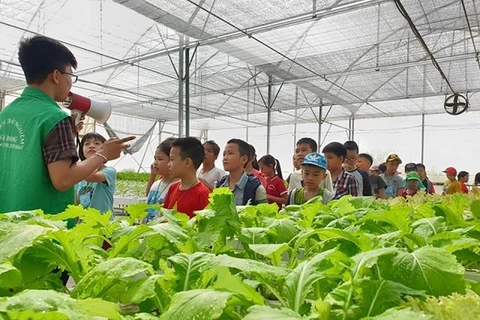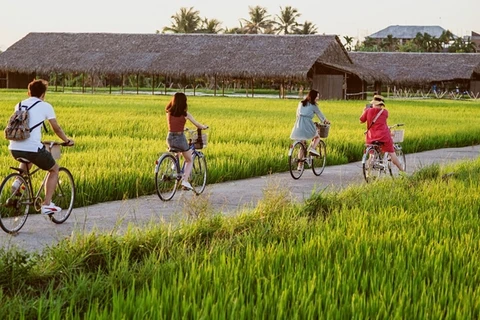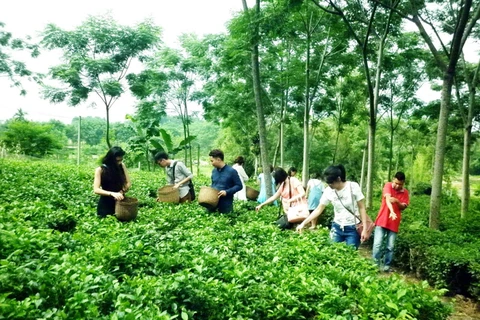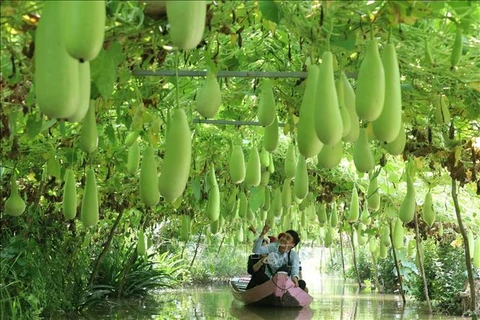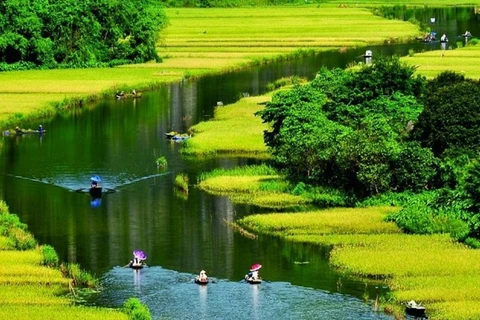 The State needs to review the legal framework relating to the real estate market, especially the agri-tourism segment. (Photo: chinhphu.vn)
The State needs to review the legal framework relating to the real estate market, especially the agri-tourism segment. (Photo: chinhphu.vn) A representative of the Department of Land under the Ministry of Natural Resources and Environment, said that while the business of agri-tourism is a developing economic model, there are not yet adequate provisions in the land law to push forward efficiently.
The improvement of legal documents and policies will create a corridor to develop this business model in accordance with the law, said the representative, adding that policymakers must continue to study land classification and how to mix land use purposes for agriculture and tourism simultaneously.
Dr. Nguyen Quang Tuyen of the Faculty of Economic Law at the Hanoi Law University said the 2013 Land Law still lacks an overall strategy for sustainable management and use of agri-tourism land.
Agri-tourism land was not officially identified in the 2013 Land Law. This provisions have no explanation for agri-tourism and no designation of what this land can be used for.
Existing regulations also have not specified the registration and issuance of land right certificates for agri-tourism purpose, or allowed authorities to change the officially stated use of land for the development of this business model.
Tuyen said that the 2013 Land Law only mentions traditional uses of agricultural land, including crop production, forestry, aquaculture, and salt production. They exclude the possibility of linking the land with tourism development.
Article 142 on land for agriculture appears at first to allude to tourism development on farmland, but it fails to go into specific detail on how this can be achieved in accordance with the law.
Nguyen Van Chung, a senior specialist from the Department of Cooperatives and Rural Development under the Ministry of Agriculture and Rural Development, said that farms have reportedly faced difficulties partly due to this lack of specific regulations.
Policies supporting the development of the farm economy are scattered in many documents, so it's difficult to implement them efficiently. Many outdated policies or inadequacy of documents related to land and construction have hindered the expansion of the farm's production scale, he said.
Besides that, there are no specific regulations for non-agricultural activities such as preliminary processing, preservation and crafting products, or indeed for tourism development. There have also been no specific regulations to allow farms to convert agricultural land, leading to some farms illegally developing tourism activities.
Tuyen said the State needs to quickly review and complete the legal framework relating to the real estate market in general and the agri-tourism real estate market segment in particular to ensure uniformity in legal documents. This will create a legal basis for the agri-tourism real estate market to operate and develop sustainably and synchronously.
In addition, it should supplement regulations on granting land use right certificates for land lots used for agri-tourism purposes, and specific rights and obligations of organisations and individuals investing in agri-tourism real estate development.
At the same time, it should consider supplementing regulations on incentives for organisations, households and individuals using agricultural land for tourism services, he said./.
VNA
